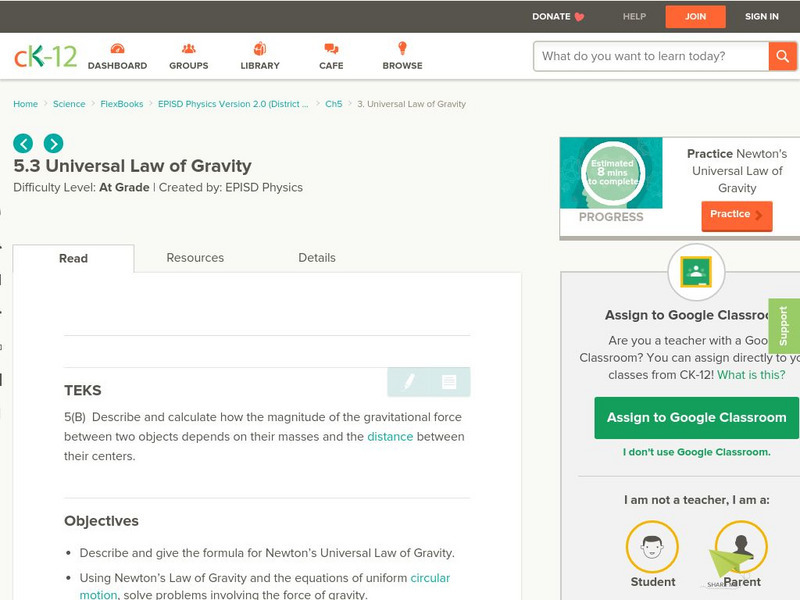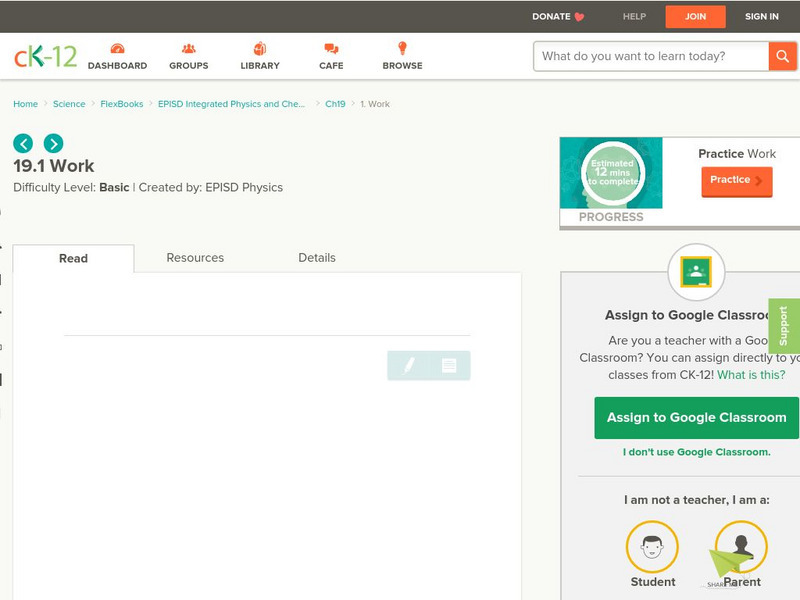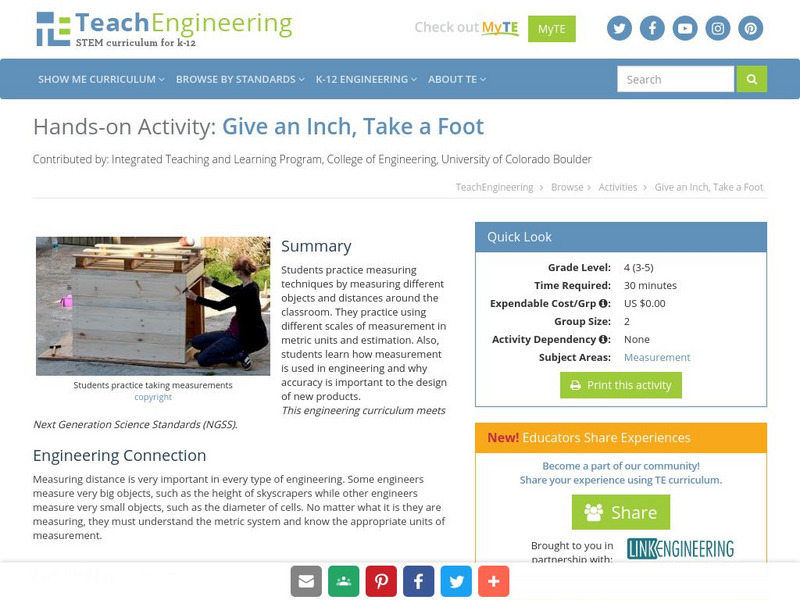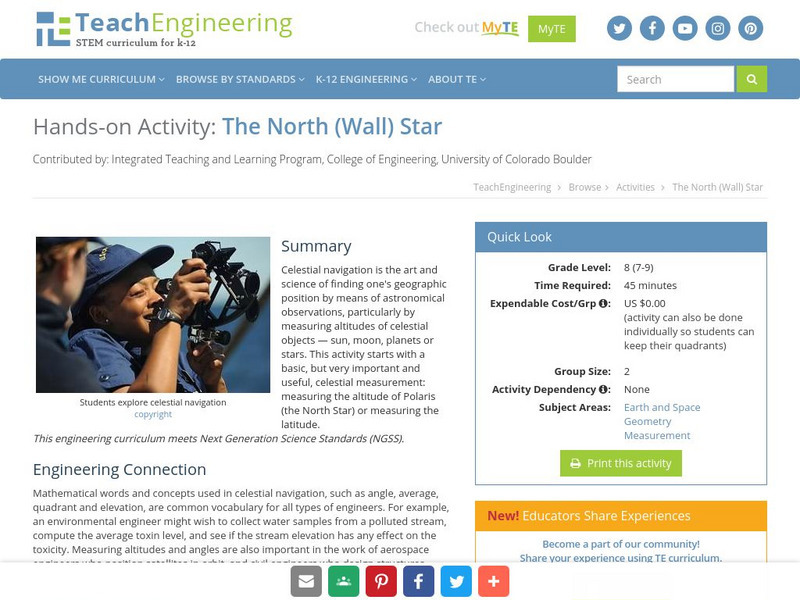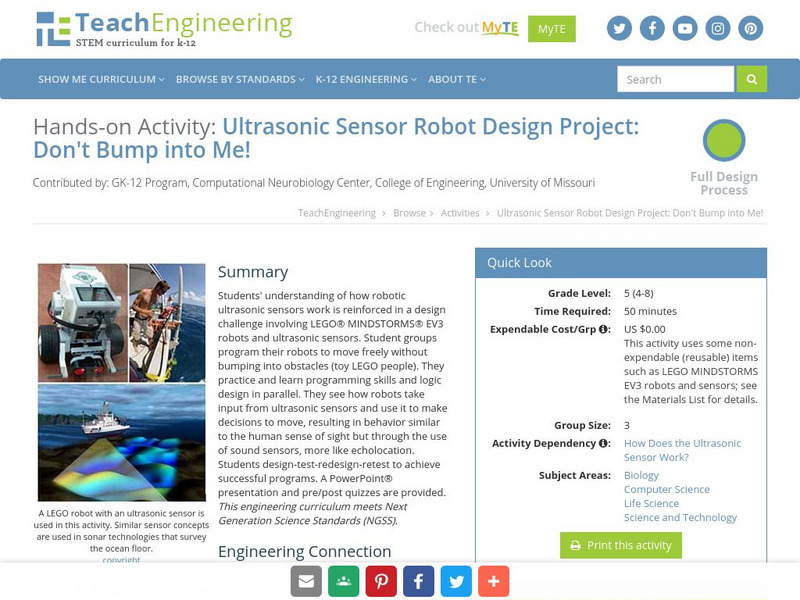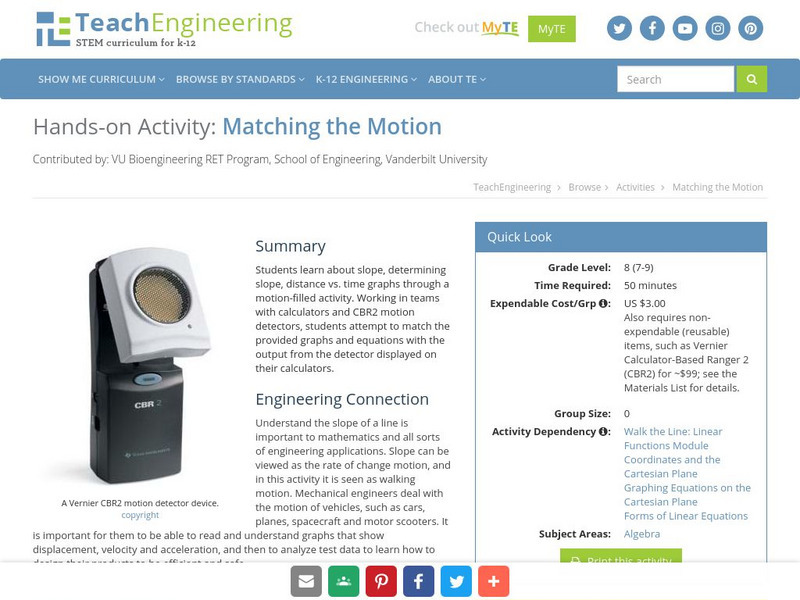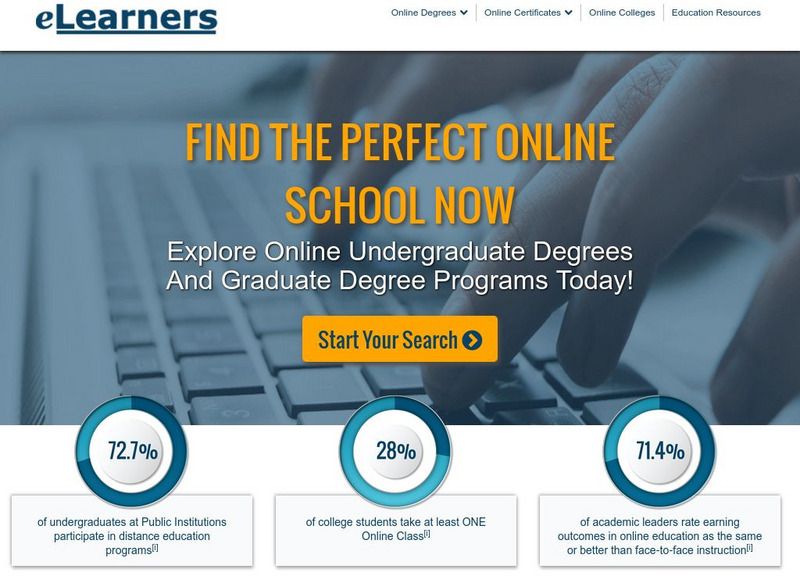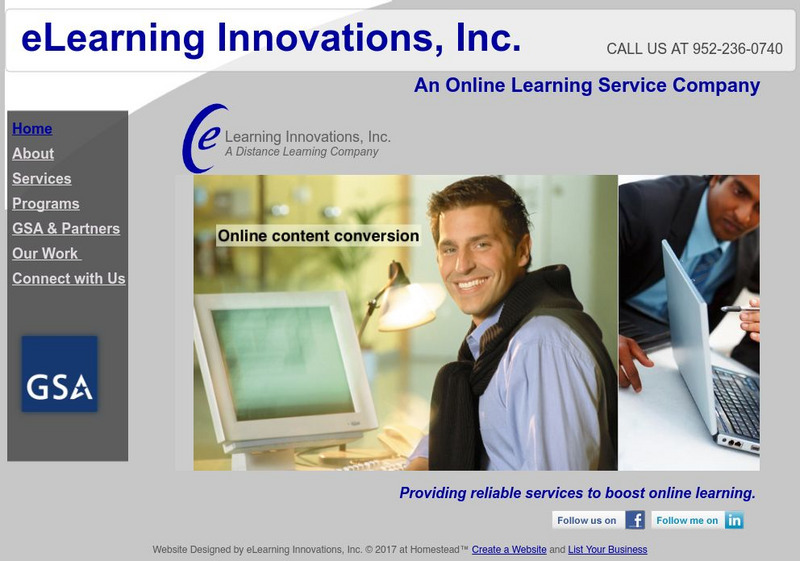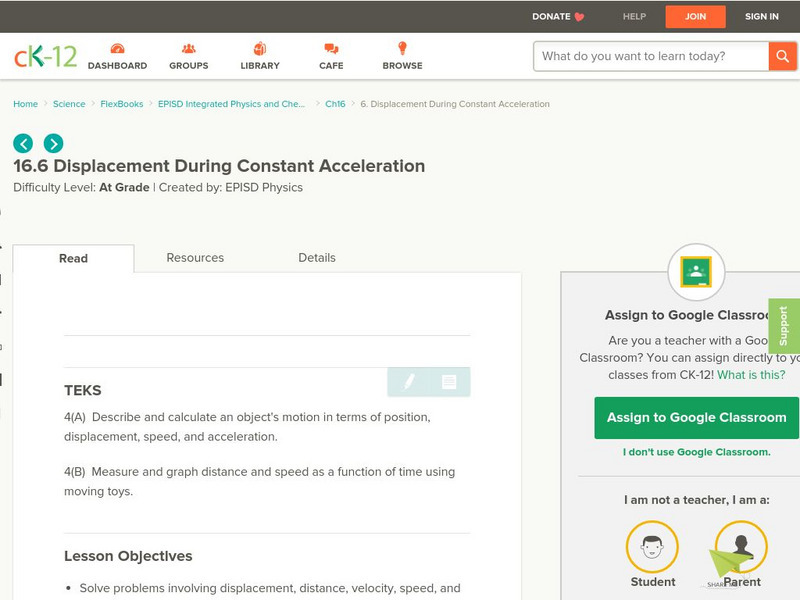CK-12 Foundation
Ck 12: Universal Law of Gravity
[Free Registration/Login may be required to access all resource tools.] In this online tutorial students will learn to describe and calculate how the magnitude of the gravitational force between two objects depends on their masses and...
CK-12 Foundation
Ck 12: Work
[Free Registration/Login may be required to access all resource tools.] In this module, calculate work and explain how it relates to the overarching idea of energy.
Khan Academy
Khan Academy: What Is Displacement?
Learn the definitions of position, displacement, distance, and distance traveled and view examples of each.
TeachEngineering
Teach Engineering: Give an Inch, Take a Foot
Students practice measuring techniques by measuring different objects and distances around the classroom. They practice using different scales of measurement in metric units and estimation. Also, students learn how measurement is used in...
TeachEngineering
Teach Engineering: The North (Wall) Star
Celestial navigation is the art and science of finding one's geographic position by means of astronomical observations, particularly by measuring altitudes of celestial objects - sun, moon, planets or stars. This activity starts with a...
TeachEngineering
Teach Engineering: Trig River
Students learn about and use a right triangle to determine the width of a "pretend" river. Working in teams, they estimate of the width of the river, measure it and compare their results with classmates.
TeachEngineering
Teach Engineering: How Far Does the Robot Go?
Students practice their multiplication skills using robots with wheels built from LEGO MINDSTORMS NXT kits. They brainstorm distance travelled by the robots without physically measuring distance and then apply their math skills to...
TeachEngineering
Teach Engineering: Don't Bump Into Me!
Students' understanding of how robotic ultrasonic sensors work is reinforced in a design challenge involving LEGO MINDSTORMS NXT robots and ultrasonic sensors.
TeachEngineering
Teach Engineering: Matching the Motion
Students learn about slope, determining slope, distance vs. time graphs through a motion-filled activity. Working in teams with calculators and CBL motion detectors, students attempt to match the provided graphs and equations with the...
Other
E Learners
ELearners.com allows people to find online courses and schools that offer those courses.
Varsity Tutors
Varsity Tutors: Hotmath: Practice Problems: Relations and Functions
Hotmath provides eighteen practice problems dealing with relations, functions, and their graphs. Each of the practice problems include a step-by-step guide for solving their Algebraic problem.
Teachnology
Teachnology: Measurement Teaching Theme
Measurement Teaching Theme provides an excellent collection of free sample worksheets, teacher resources, lesson plans and interactive media for the elementary grades.
Other
Rio Salado College Online: E Learning Information
Rio Salado College allows individuals to take courses off campus trough a system called distance learning.
TeachEngineering
Teach Engineering: How Does an Ultrasonic Sensor Work?
Students learn how ultrasonic sensors work, reinforcing the connection between this sensor and how humans, bats, and dolphins estimate distance.
Texas Education Agency
Texas Gateway: Objects in Motion
This resource provides flexible alternate or additional learning activities for students learning about the concepts of distance, speed, and acceleration.
Texas Education Agency
Texas Gateway: Changes in Motion
Given diagrams or scenarios, students will measure and graph changes in motion.
PBS
Pbs Learning Media: Aiming for the Basketball Hall of Fame
In this video segment from TV 411, two Atlanta Hawks players plan a driving route to reach the Basketball Hall of Fame. They use map scales to estimate their travel distances.
PBS
Pbs Learning Media: Calculating Speed
In this Cyberchase video segment, the CyberSquad calculates the speed of each broom.
TeachEngineering
Teach Engineering: Projectile Motion
Students are introduced to the concept of projectile motion, of which they are often familiar from life experiences,such as playing sports such as basketball or baseball, even though they may not understand the physics involved. Students...
Texas Education Agency
Texas Gateway: Ap Physics: Displacement
By the end of this section, you will be able to do the following: Define position, displacement, distance, and distance traveled in a particular frame of reference; Explain the relationship between position and displacement; Distinguish...
Other
E Learning Innovations: Teletraining Institute
The Teletraining Institute offers several online degrees. A course catalog is provided on this page as well.
Utah Education Network
Uen: Rollin' On
Activity shows how gravity affects the motion of an object rolling up or down a hill.
CK-12 Foundation
Ck 12: Potential Energy
[Free Registration/Login may be required to access all resource tools.] In this online tutorial, students are invited to investigate examples of potential energy and their transformations.
CK-12 Foundation
Ck 12: Displacement During Constant Acceleration
[Free Registration/Login may be required to access all resource tools.] Students solve problems involving displacement, distance, velocity, speed, and acceleration, and then explore problems and graphs involving one-dimensional motion.


